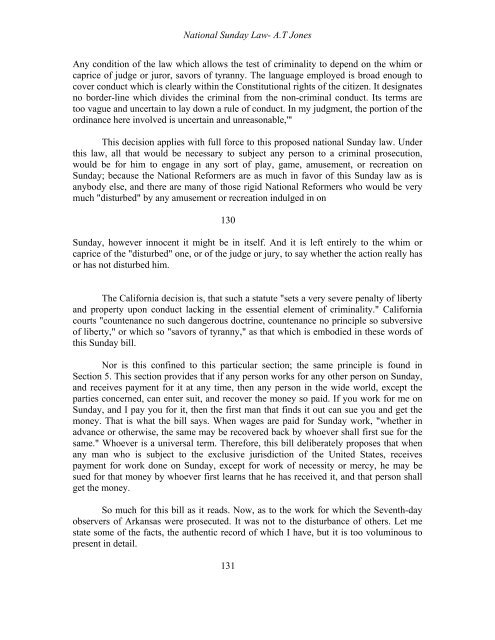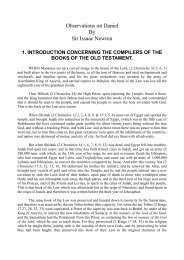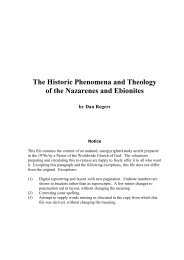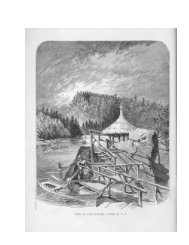THE NATIONAL SUNDAY LAW, ARGUMENT OF ALONZO T ...
THE NATIONAL SUNDAY LAW, ARGUMENT OF ALONZO T ...
THE NATIONAL SUNDAY LAW, ARGUMENT OF ALONZO T ...
Create successful ePaper yourself
Turn your PDF publications into a flip-book with our unique Google optimized e-Paper software.
National Sunday Law- A.T Jones<br />
Any condition of the law which allows the test of criminality to depend on the whim or<br />
caprice of judge or juror, savors of tyranny. The language employed is broad enough to<br />
cover conduct which is clearly within the Constitutional rights of the citizen. It designates<br />
no border-line which divides the criminal from the non-criminal conduct. Its terms are<br />
too vague and uncertain to lay down a rule of conduct. In my judgment, the portion of the<br />
ordinance here involved is uncertain and unreasonable,'"<br />
This decision applies with full force to this proposed national Sunday law. Under<br />
this law, all that would be necessary to subject any person to a criminal prosecution,<br />
would be for him to engage in any sort of play, game, amusement, or recreation on<br />
Sunday; because the National Reformers are as much in favor of this Sunday law as is<br />
anybody else, and there are many of those rigid National Reformers who would be very<br />
much "disturbed" by any amusement or recreation indulged in on<br />
130<br />
Sunday, however innocent it might be in itself. And it is left entirely to the whim or<br />
caprice of the "disturbed" one, or of the judge or jury, to say whether the action really has<br />
or has not disturbed him.<br />
The California decision is, that such a statute "sets a very severe penalty of liberty<br />
and property upon conduct lacking in the essential element of criminality." California<br />
courts "countenance no such dangerous doctrine, countenance no principle so subversive<br />
of liberty," or which so "savors of tyranny," as that which is embodied in these words of<br />
this Sunday bill.<br />
Nor is this confined to this particular section; the same principle is found in<br />
Section 5. This section provides that if any person works for any other person on Sunday,<br />
and receives payment for it at any time, then any person in the wide world, except the<br />
parties concerned, can enter suit, and recover the money so paid. If you work for me on<br />
Sunday, and I pay you for it, then the first man that finds it out can sue you and get the<br />
money. That is what the bill says. When wages are paid for Sunday work, "whether in<br />
advance or otherwise, the same may be recovered back by whoever shall first sue for the<br />
same." Whoever is a universal term. Therefore, this bill deliberately proposes that when<br />
any man who is subject to the exclusive jurisdiction of the United States, receives<br />
payment for work done on Sunday, except for work of necessity or mercy, he may be<br />
sued for that money by whoever first learns that he has received it, and that person shall<br />
get the money.<br />
So much for this bill as it reads. Now, as to the work for which the Seventh-day<br />
observers of Arkansas were prosecuted. It was not to the disturbance of others. Let me<br />
state some of the facts, the authentic record of which I have, but it is too voluminous to<br />
present in detail.<br />
131
















